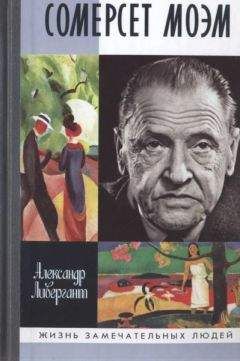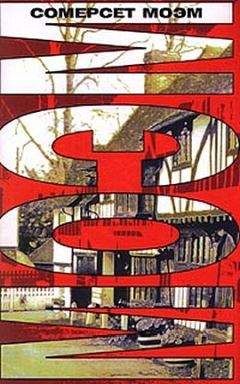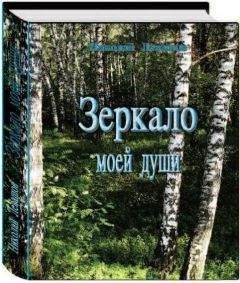Уильям Моэм - Мистер Всезнайка. Рассказы
tiring ['taI(q)rIN], spacious ['speISqs], beforehand [bI'fO: hxnd], macaroni ["mxkq'rqunI]
But when the time came to set out my friend was not feeling well, he thought he had slaved too long in the water, and would not face the long and tiring walk. So I went alone with Wilson. We climbed the mountain, admired the spacious view, and got back to the inn as night was falling, hot, hungry, and thirsty. We had ordered our dinner beforehand. The food was good, for Antonio was an excellent cook, and the wine came from his own vineyard. It was so light that you felt you could drink it like water and we finished the first bottle with our macaroni.
By the time we had finished the second (к тому времени, когда мы прикончили вторую) we felt that there was nothing much wrong with life (мы чувствовали, что в жизни было все прекрасно: «не было ничего особо неприятного в жизни»; wrong— неправильный, ошибочный; неудовлетворительный). We sat in a little garden under a great vine laden with grapes (мы сидели в маленьком садике, под большой виноградной лозой, увешанной тяжелыми гроздьями; laden— нагруженный; гнущийся под тяжестью чего-либо). The air was exquisitely soft (воздух был изысканно теплым; soft— мягкий; мягкий, теплый). The night was still and we were alone (ночь была тихой, и мы были одни; still— неподвижный; тихий, бесшумный). The maid brought us belpaese cheese and a plate of figs (служанка принесла нам сыр ‘bel paese’ /‘прекрасная деревня’ — итал., вид мягкого сыра с твердой коркой/ и тарелку инжира). I ordered coffee and strega, which is the best liqueur they make in Italy (я заказал кофе и «Стрегу» — самый лучший итальянский ликер: «ликер, который делают в Италии»). Wilson would not have a cigar, but lit his pipe (Уилсон отказался от сигары: «он не захотел сигару», а закурил трубку; tolight— зажигать; прикуривать).
"We’ve got plenty of time before we need start (у нас много времени, прежде чем нам надо будет идти; plenty— изобилие, достаток; множество, избыток)," he said, "the moon won’t be over the hill for another hour (луна не поднимется над холмом еще целый час)."
exquisitely [Ik'skwIzItlI, 'ekskwIzItlI], brought [brO: t], liqueur [lI'kjuq]
By the time we had finished the second we felt that there was nothing much wrong with life. We sat in a little garden under a great vine laden with grapes. The air was exquisitely soft. The night was still and we were alone. The maid brought us bel paese cheese and a plate of figs. I ordered coffee and strega, which is the best liqueur they make in Italy. Wilson would not have a cigar, but lit his pipe.
"We’ve got plenty of time before we need start," he said, "the moon won’t be over the hill for another hour."
"Moon or no moon (луна луной: «луна или не луна»)," I said briskly (бодро сказал я; brisk — живой, проворный), "of course we’ve got plenty of time (конечно же у нас много времени). That’s one of the delights of Capri (это одна из прелестей Капри; delight — восторг, восхищение; поэт. очарование, прелесть), that there’s never any hurry (что вообще нет никакой спешки; never — никогда; эмоц. — усил. нисколько, никоимобразом)."
"Leisure (свободное время; leisure— досуг; свободное время)," he said. "If people only knew (если бы люди только знали)! It’s the most priceless thing a man can have (это самое драгоценное: «бесценное», чем может обладать человек; price— цена;priceless— бесценный, неоценимый) and they’re such fools they don’t even know it’s something to aim at (а они такие дураки/глупцы, что даже не знают, что это /и есть/ то самое важное, к чему стремиться; something— что-то, кое-что; нечто важное). Work (работа)? They work for work’s sake (они работают во имя/ради работы). They haven’t got the brains to realize (им не хватает: «у них нет» ума понять; torealize— осуществить, выполнить; представлять себе, осознавать) that the only object of work is to obtain leisure (что единственная цель работы — обрести свободное время; object— предмет, вещь; /конечная/ цель, движущий мотив)."
delight [dI'laIt], leisure ['leZq], realize ['rIqlaIz]
"Moon or no moon," I said briskly, "of course we’ve got plenty of time. That’s one of the delights of Capri, that there’s never any hurry."
"Leisure," he said. "If people only knew! It’s the most priceless thing a man can have and they’re such fools they don’t even know it’s something to aim at. Work? They work for work’s sake. They haven’t got the brains to realize that the only object of work is to obtain leisure."
Wine has the effect on some people (на некоторых людей вино воздействует таким образом; effect— результат, следствие; действие, воздействие) of making them indulge in general reflections (что заставляет их пускаться в общие рассуждения: «позволять себе общие рассуждения»; to make smb. do smth. — заставлять, вынуждать кого-либо делать что-либо;toindulge— быть снисходительным /к кому-либо/; позволять себе, доставить себе удовольствие;general— общий; общепринятый; расплывчатый, неточный;reflection— отражение;pl. мысли, соображения). These remarks were true (эти замечания были верны), but no one could have claimed that they were original (но никто не мог бы утверждать, что они были оригинальными; toclaim— требовать /обыкн. как принадлежащее по праву/; разг. утверждать, заявлять /что-либо/;original— первый, исконный; новый, свежий). I did not say anything, but struck a match to light my cigar (я промолчал: «я не сказал ничего», /а только/ чиркнул спичкой, чтобы прикурить сигару; tostrike— ударять, бить; высекать /огонь/, зажигать).
"It was full moon the first time I came to Capri (когда я в первый раз приехал на Капри, как раз было полнолуние)," he went on reflectively (продолжал он задумчиво; toreflect— отражать; размышлять, раздумывать). "It might be the same moon as tonight (может быть, луна была такая же, как сегодня /ночью/)."
"It was, you know (она и была, знаете ли)," I smiled (улыбнулся я).
He grinned (он ухмыльнулся). The only light in the garden (единственный свет в саду) was what came from an oil lamp that hung over our heads (исходил от масляной лампы, что висела над нашими головами). It had been scanty to eat by (для ужина лампа была тусклой: «она была скудной, чтобы есть при ней»; scanty— скудный, недостаточный;by— зд. указывает на местонахождение вблизи чего-либо: у, около, рядом) but it was good now for confidences (но теперь она была в самый раз — для признаний = для доверительной беседы; good— хороший; подходящий, отвечающий цели;confidence— доверие; конфиденциальное сообщение, секрет).
indulge [In'dAldZ], reflection [rI'flekS(q)n], confidence ['kOnfId(q)ns]
Wine has the effect on some people of making them indulge in general reflections. These remarks were true, but no one could have claimed that they were original. I did not say anything, but struck a match to light my cigar.
"It was full moon the first time I came to Capri," he went on reflectively. "It might be the same moon as tonight."
"It was, you know," I smiled.
He grinned. The only light in the garden was what came from an oil lamp that hung over our heads. It had been scanty to eat by, but it was good now for confidences.
"I didn’t mean that (я не это имел в виду; tomean— намереваться; подразумевать, иметь в виду). I mean, it might be yesterday (я хочу сказать, что словно все было вчера: «это могло быть вчера»). Fifteen years it is, and when I look back it seems like a month (/вот уже/ пятнадцать лет /прошло/, а когда я оглядываюсь назад, /они/ кажутся месяцем; tolookback— оглядываться; мысленно обращаться к прошлому, вспоминать). I’d never been to Italy before (я никогда раньше не был в Италии). I came for my summer holiday (я приехал в летний отпуск; holiday— праздник, день отдыха; отпуск, каникулы). I went to Naples by boat from Marseilles (я ехал на пароходе из Марселя в Неаполь;boat— лодка, шлюпка; судно, корабль) and I had a look round, Pompeii, you know, and Paestum and one or two places like that (и осмотрел /достопримечательности/, Помпеи, знаете ли, и Пестум, и /еще/ одно или два подобных места;round— зд. указывает на осмотр дома, музея и т. п.); then I came here for a week (после чего я приехал сюда на неделю).
holiday ['hOlIdI], Marseilles [mQ:'seIlz], Pompeii [pOm'peII]
"I didn’t mean that. I mean, it might be yesterday. Fifteen years it is, and when I look back it seems like a month. I’d never been to Italy before. I came for my summer holiday. I went to Naples by boat from Marseilles and I had a look round, Pompeii, you know, and Paestum and one or two places like that; then I came here for a week.
"I liked the look of the place right away (мне сразу же понравился вид острова; look — взгляд; вид, наружность), from the sea, I mean, as I watched it come closer and closer (я хочу сказать, еще с моря, пока я наблюдал, как он все приближался и приближался); and then when we got into the little boats from the steamer and landed at the quay (и потом, когда мы /сошли/ с парохода и уселись: «забрались» в маленькие лодки, и высадились на берег у причала), with all that crowd of jabbering people (/на котором находилась/ вся та толпа тараторящих людей; to jabber — говоритьбыстроиневнятно, тараторить) who wanted to take your luggage (которые хотели схватить /и поднести/ багаж), and the hotel touts (и зазывалы гостиниц; tout — человек, усиленнопредлагающийсвойтовар; человек, зазывающийклиентоввгостиницу, игорныйдомит.д.), and the tumbledown houses on the Marina (и полуразрушенные дома вдоль пристани /Marina Grande/) and the walk up to the hotel (и дорожка /ведущая/ вверх, к отелю; walk — ходьба; дорожка, тропинка), and dining on the terrace (и обеды на террасе) — well, it just got me (что ж, все это увлекло меня; to get — доставать, добывать; захватывать, увлекать, волновать). That’s the truth (это правда). I didn’t know if I was standing on my head or my heels (у меня голова шла кругом: «я не знал, стоял ли я на голове, или на пятках»).
quay [ki: ], jabber ['dZxbq], tout [taut], tumble-down ['tAmb(q)ldaVn]
"I liked the look of the place right away, from the sea, I mean, as I watched it come closer and closer; and then when we got into the little boats from the steamer and landed at the quay, with all that crowd of jabbering people who wanted to take your luggage, and the hotel touts, and the tumbledown houses on the Marina and the walk up to the hotel, and dining on the terrace — well, it just got me. That’s the truth. I didn’t know if I was standing on my head or my heels.
"I’d never drunk Capri wine before, but I’d heard of it (я никогда раньше не пил вина /с острова/ Капри, но я слышал о нем); I think I must have got a bit tight (думаю, что я, должно быть, слегка надрался; to get tight — надраться, нализаться; tight — тугой;сл. навеселе, подмухой; a bit — кусок, кусочек; небольшоеколичество, чуть-чуть). I sat on that terrace after they’d all gone to bed (я сидел на террасе после того, как все /они/ отправились спать; bed — кровать, постель) and watched the moon over the sea (и смотрел на луну над морем), and there was Vesuvius with a great red plume of smoke rising up from it (и /там был/ Везувий, над которым поднимался большой столб багрового дыма; plume — перо/длинноеилияркое/;струйка, завиток). Of course I know now that wine I drank was ink (конечно, теперь я знаю, что то вино, которое я пил, было что чернила), Capri wine my eye (каприйское вино, как же; eye— глаз, око;myeye— вот те на! вот это да! и т. п.), but I thought it all right then (но тогда мне казалось, что оно какое надо; allright— удовлетворительный; приемлемо, как нужно). But it wasn’t the wine that made me drunk (но пьяным я стал не от вина; tomakesmb.drunk— напоить кого-либо; опьянить кого-либо;drunk— пьяный; опьяненный), it was the shape of the island (а от формы острова) and those jabbering people (и тех орущих людей), the moon (и луны) and the sea (и моря) and the oleander in the hotel garden (и от олеандра в гостиничном саду). I’d never seen an oleander before (раньше я никогда не видел ни одного олеандра)."




